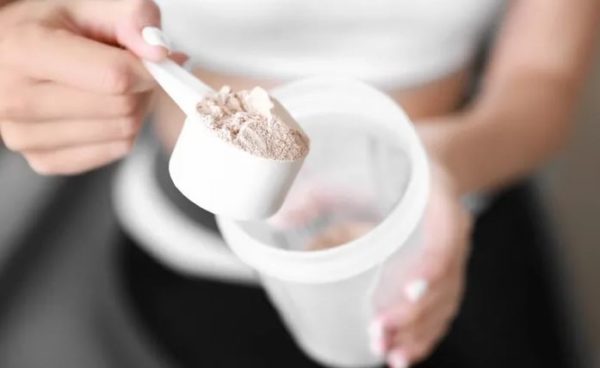Lifestyle
Here’s the best protein powder for weight loss

The food we eat is loaded with protein, but it fails to provide high-quality complete protein.
Adding protein to the diet is essential to losing weight and the most popular way to boost your protein intake level is by including protein powder.
Mostly taken after a workout session by people trying to lose weight and build muscle, protein powder is a concentrated form of the nutrient.
Different varieties of protein powder are available in the market like casein, soy, pea, brown rice, hemp. Choosing the right one from the lot can be a tough task.
To make it easier for you, we will tell you how to pick the right protein powder for weight loss.
The right kind of protein powder for weight loss
Experts in the field of fitness have always considered whey protein as a high-quality source of protein. Even several studies carried out to understand the effect of different types of protein on weight loss revealed that whey protein is the better option than others. The reason is that it is the most thermogenic food source, which means it burns the most calories after you eat it. Even when compared to casein or soy protein, whey protein is considered the best. It helps to keep the metabolism going all day, means burning calories all day and helping in protein synthesis, a process that helps to build new muscle.
What is whey protein?
Whey protein is a dairy-based protein processed from the remaining liquid part of cheese or yoghurt. The fluid obtained from the dairy products contains fast-digesting proteins called whey protein. The liquid contains about 20 per cent of whey and 80 per cent casein proteins. It is filtered and dried to process whey protein powder.
Things to keep in mind while buying protein powder
While the market aisle is full of different protein powders, not all of them are good for health. When shopping for protein powder there are a few things you need to check the label for as these ingredients can sabotage your weight loss process.
Artificial sweeteners: Artificial sweetener is as harmful to health as normal sugar. Look for sucralose, splenda or aspartamine in the protein powder. These ingredients may lead to indigestion, headache, migraines, gastric distress and worst of all weight gain.
Artificial flavouring: Artificial flavouring may make the protein powder taste better but impact your health. Most protein powder processing companies do not specify what they have added to their product for flavouring purposes. It is better to avoid flavoured protein powder.
Carrageenan: Carrageenan is derived from seaweed and is believed to cause digestive problems and intestinal inflammation. It is also linked to cancer.
Vegetable Oils: Some protein powders also contain vegetable oils as a thickening agent. But these sources of fat are not considered good when trying to shed kilos.
The right way to take protein powder
For fast and best results, researchers recommend having protein powder 30 minutes after finishing the exercise. The first one must try to get the nutrients from food like lentils, eggs, chicken and others. Protein powder is the more concentrated form of protein so it should be included in the diet when protein’s requirement of the body is not met from the daily meal.










